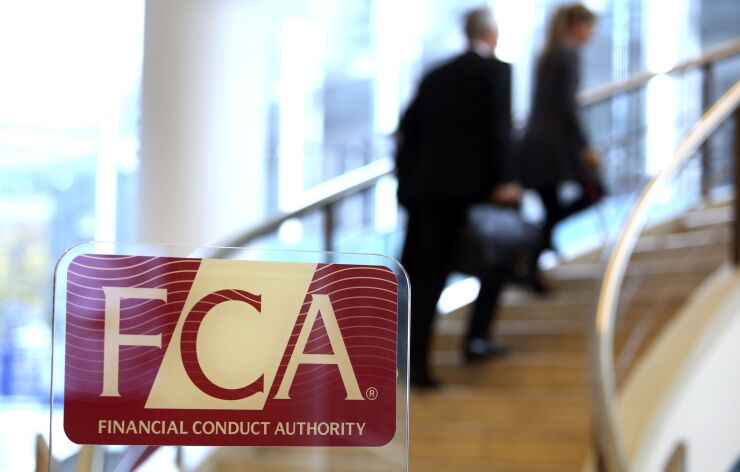
PayPal is planning to expand across brick-and-mortar stores in Germany over the summer with the launch of its first-ever contactless
German customers will be able to use PayPal's app to pay by tapping their phone at any location that accepts Mastercard contactless payments. Customers will also be able to use PayPal's buy now/pay later product for purchases made in physical stores and finance those purchases in three-, six-, 12- or 24-month installments.
Customers will also be able to activate merchant offers in the app to
"As technology advances, the benefits of digital payments in stores are becoming harder to ignore," Joerg Kablitz, managing director of PayPal Germany, Austria & Switzerland, said in a statement. "Cash has a role to play, but we know that many consumers and businesses are ready for innovative alternatives."
Europe has become a key market for mobile wallet providers, which are using the continent as a market to launch rivals to Apple Pay, which has opened its mobile payment-enabling technology as part of an antitrust settlement with EU regulators.

U.K. ponders ban on credit to buy crypto
The Financial Conduct Authority is concerned that people are going into debt to buy cryptocurrency, and is considering ways to curb the practice.
In an
The regulator is proposing a ban on using credit cards to buy crypto, though it says stablecoins would likely be exempt from that ban. Stablecoins, which are backed by reserves of traditional currency and are the most likely form of crypto for payments, are
The FCA is assembling input on the proposed restrictions until June 13, and will issue a more formal proposal by the end of the year. —John Adams

JPMorgan touts blockchain gains in MENA
JPMorganChase says it is seeing increased interest in its blockchain platform Kinexys from major banks in the Middle East and North Africa.
Saudi National Bank went live with J.P. Morgan's blockchain platform in February to bring real-time, programmable payments to its treasury department. Initial use cases involved moving money across various branches and discharging treasury payment obligations without traditional cutoff times. The Saudi bank also intends on rolling out cross-border money movement to large corporate clients.
Separately, in March, Qatar National Bank began using J.P. Morgan's blockchain system for U.S. dollar corporate flows, including on-demand multi-currency cross-border payments and blockchain deposit accounts.
Eight of the largest financial institutions in the MENA region tap Kinexys as their blockchain provider, including First Abu Dhabi Bank, Emirates NBD, Commercial Bank of Dubai and Bank ABC.

Google Wallet IDs take the train in the U.K.
Google Wallet plans to enable users in the U.K. to create digital IDs through their passports.
These IDs can be used initially for rail passes with other uses such as airport security to come later, according to
Google Wallet at one time was the brand for Google's mobile payment app. The technology company divided its payment apps, with Google Wallet storing digital credentials. Google Wallet's IDs are tied to Google Pay, which is Google's payment function.

Visa ups its bet on stablecoins
The card network's venture capital unit has made an investment of an undisclosed amount in BVNK, a payments technology company that is among the early firms to support
BVNK said as part of the investment, Visa's ability to build international payment networks will combine with BVNK's stablecoin processing system.
"Stablecoins are fast becoming a part of global payment flows, and Visa invests in new technologies and builders like BVNK, staying at the forefront of what's next in commerce to better serve our clients and partners," Rubail Birwadker, head of growth products and partnerships for Visa, said in a release.
BVNK processed about $12 billion in stablecoin payments in 2024. BVNK enables companies to access stablecoins on its platform, create cryptocurrency wallets, and execute payments such as payroll, consumer transactions and B2B transfers. Visa has

Corpay, TPG plan to take AvidXchange private
Shortly after drawing an
Corpay will pay $500 million to own 33% of AvidXchange, and will team with TPG to take AvidXchange private for $10 per share in a deal that values AvidXchange at $2.2 billion. The transaction is expected to close in the fourth quarter 2025.
AvidXchange sells accounts payable technology to companies that have clients operating in real estate, financial institutions and media. Mastercard's recent investment in Corpay gives the card network a 3% stake in the company, and makes Corpay a preferred provider of currency risk management and payment technology for businesses. Mastercard's Move disbursement service is also available to Corpay's customers. —John Adams

U.K. becomes Klarna's third-largest market with 11M customers
The popularity of installment lending in the U.K. is reaping benefits for Klarna.
The Swedish buy now/pay later lender boasts more than 11 million active customers in the U.K. and doubled its merchant base to 60,000 merchants within the last year amid a 30% increase in revenue.
"Eleven million U.K. customers is a huge moment for us," Raji Behal,
The U.K. BNPL market is growing at a 12% yearly rate and is on pace to pass about $38 million in 2025 BNPL, according to Research and Markets. Klarna's biggest markets are the U.S. and Germany. —Joey Pizzolato

Custodia Bank and Vantage Bank complete tokenized bank deposit
DX Xpress, a logistics and trucking company, worked with Custodia Bank and Vantage Bank to use tokenized U.S. dollars for cross-border payments between Mexico and the United States.
"At DX Xpress, we are always in search for technology to accelerate our operations," said Antonio Bazán, president and CEO of DX Xpress, in a statement. "We see the capability to offer integrated, programmable U.S. dollar payments through our platform to speed up cash conversion cycles allowing for payments to be initiated via a smart contract at delivery and ultimately paying drivers for a completed route within the hour."
Shipping and logistic companies have long grappled with out-of-sync payments that





